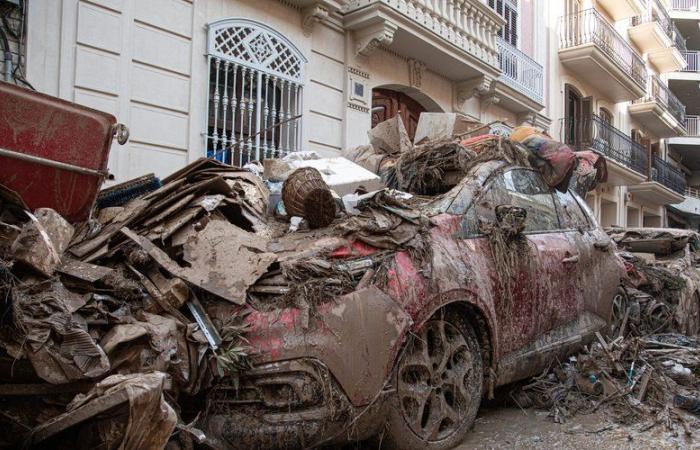
the essential
Several countries in the Mediterranean basin have been victims of torrential rains, landslides and significant flooding this fall. Spain was hardest hit. How can this succession of bad weather be explained?
Car wrecks tangled on top of each other, streets invaded by waves of muddy water, an angry crowd calling the King and Queen of Spain “assassins”… These images of the floods in the region of Valencia in Spain illustrates all the violence of the bad weather affecting the Mediterranean basin this fall. 223 people died and 17 remain missing.
Spain is far from being the only country in the Mediterranean basin affected this fall. Morocco and Algeria suffered torrential rains in September, violent rains hit Greece in September, torrential rains hit Sicily (Italy) in October. Climatic disasters have each time caused victims and significant damage.
A succession of cold drops
After a warm and sunny summer, late autumn and winter are a time when Mediterranean countries usually experience wet and unsettled weather. In France, it is the period of the Cévennes episodes. But this fall of 2024 was very special.
“Since the end of October, the situation has been reversed in Europe. We have had an anticyclone on the continental part, particularly the northern part, and to the south of this anticyclone more of a depression situation, particularly in the above the Mediterranean, with several cold drops, that is to say cold air at altitude”, described in The Dispatch Guillaume Séchet, the creator of Météo-villes.com.
Spain just can’t catch a break. An anticyclonic Rossby wave-breaking event will facilitate the development of yet another cut-off upper-level low next week. It’s too early for details, but the Levante region (eastern Iberia) should once again prepare for possible flash flooding. pic.twitter.com/kUTxrv3oQo
— Nahel Belgherze (@WxNB_) https://twitter.com/WxNB_/status/1855589122477310340?ref_src=twsrc%5Etfw
“When these depressions fly over the Mediterranean where the water is still warm in this season, it causes instability. There is cold air at altitude, warm air at sea level, air rises, this causes the formation of vertical clouds, and heavy thunderstorms, which can stay in the same region, to the extent that there is relief. This humid and warm air is blocked on the reliefs and these. “Heavy rains fall on the same region for several hours,” continues meteorologist Guillaume Séchet.
With a very hot summer, hard soils and high urbanization of the coast, “all the factors were there for flash floods to occur”.
Global warming accentuates these phenomena
As the latest IPCC (Intergovernmental Panel on Climate Change) report assures, since the 1980s, the warming of the Mediterranean atmosphere has exceeded that observed in the rest of the world. And the Mediterranean is a region of the world where water temperatures are warming faster than elsewhere. In this month of November, the Mediterranean remains particularly warm, between +2°C and +5°C on the surface above normal. For example, the water is still at 18°C in Narbonne-Plage!
Guillaume Séchet assures us: “Global warming accentuates these phenomena. When we look at the statistics, the events are not necessarily more frequent than before, but the major events are more frequent. In the Cévennes, we have weather stations which have been measuring rainfall since 1940. There are peaks over 24 hours that we have not observed until now. This is linked to global warming. Studies show that for every additional 1°C of global warming, there is 7% more water vapor in the atmosphere. And as much risk of torrential rains.





